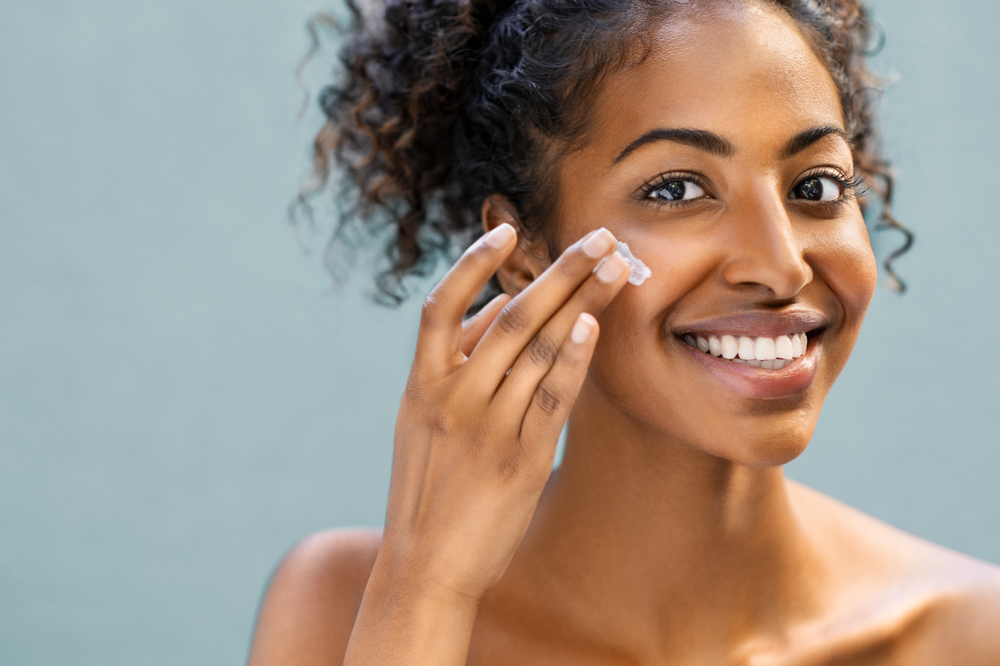Persistent chin acne is a frustrating issue for many, stemming from a combination of hormonal shifts, lifestyle factors, and environmental challenges. It is especially common among adults, particularly women, whose skin undergoes changes during various life stages. This comprehensive guide explores the causes of chin acne and offers practical, science-backed solutions for clearer, healthier skin.
Causes of chin acne
Chin acne develops when multiple factors converge to create a perfect storm for breakouts. Hormonal fluctuations are among the most significant contributors. These shifts can occur during puberty, pregnancy, menstrual cycles, and menopause. Hormones like androgens, particularly testosterone, trigger an increase in sebum production, which clogs pores and creates a favorable environment for acne-causing bacteria to thrive.
While hormones play a central role, other factors also contribute. Genetics can make some people more prone to acne, while poor skincare habits, such as using products that clog pores, can exacerbate the issue. Additionally, certain medications, like steroids or birth control, may influence acne development.
Environmental and lifestyle factors
Environmental pollutants, daily stress, and modern lifestyles have made skin problems more prevalent. Mask-wearing, an unavoidable part of daily life for many, traps moisture and creates friction on the chin area, leading to irritation and breakouts. This phenomenon, often referred to as “maskne,” has introduced new challenges in managing acne.
Diet is another critical factor. Consuming high-glycemic foods, such as sugary snacks and refined carbohydrates, can spike insulin levels, triggering increased oil production and inflammation. Dehydration, on the other hand, affects skin elasticity and reduces the skin’s ability to heal itself, making breakouts more persistent.
Stress, often underestimated, plays a significant role as well. High stress levels increase cortisol production, which directly affects oil gland activity. This can lead to a vicious cycle of breakouts and heightened emotional strain, particularly when the acne becomes severe or chronic.
Effective treatment strategies
Treating chin acne effectively requires a multifaceted approach tailored to individual skin types and needs. While there are no universal quick fixes, combining topical treatments, internal changes, and preventative measures can yield noticeable results.
Topical treatments are often the first line of defense. Retinoids, derived from vitamin A, help unclog pores and promote skin renewal. Benzoyl peroxide is another effective ingredient that targets acne-causing bacteria while reducing inflammation. For those dealing with individual spots, hydrocolloid patches can be a useful addition, as they draw out impurities and provide a barrier against irritation.
Addressing acne from within is equally important. A balanced diet rich in anti-inflammatory foods, such as fatty fish, leafy greens, and nuts, helps regulate the body’s response to inflammation. Drinking enough water throughout the day supports the skin’s natural detoxification process. Probiotic supplements can also improve gut health, which has been linked to better skin outcomes, as the gut-skin connection plays a crucial role in reducing inflammation.
Preventing future breakouts
Prevention is the cornerstone of maintaining clear skin. Establishing a simple, consistent skincare routine with products suited to your skin type is vital. Opt for non-comedogenic cleansers and moisturizers to avoid clogging pores. Over-cleansing or using harsh products can strip the skin of natural oils, causing it to overcompensate with excess sebum production.
Regularly cleaning items that come into contact with your chin, such as phones, pillowcases, and masks, can prevent bacteria from spreading to the skin. It’s also crucial to wash your hands frequently and avoid touching your face unnecessarily. Small habits like these can significantly reduce the risk of new breakouts.
In addition to physical steps, managing stress through relaxation techniques such as yoga, meditation, or regular exercise can improve overall skin health. Reducing stress not only lowers cortisol levels but also contributes to better mental and emotional well-being, which can indirectly improve skin conditions.
When professional help is needed
For persistent or severe chin acne, consulting a dermatologist can provide access to advanced treatments. Hormonal acne, which resists over-the-counter remedies, often responds well to prescription options such as oral contraceptives or anti-androgen medications like spironolactone. Dermatologists can also recommend treatments like chemical peels or laser therapy for deeper or more resistant breakouts.
Professional guidance is particularly important when dealing with scarring or post-inflammatory hyperpigmentation. Early intervention can prevent long-term damage and improve overall skin texture and appearance. It’s also an opportunity to rule out underlying medical conditions that may be contributing to acne.
The psychological impact of chin acne
Chin acne is more than a cosmetic concern. For many, it affects self-esteem and social confidence, leading to feelings of frustration or embarrassment. This emotional toll can exacerbate the problem, as stress often worsens acne.
Taking a holistic approach to treatment involves addressing both physical symptoms and emotional well-being. For example, joining support groups, seeking therapy, or engaging in activities that boost confidence can help individuals cope with the psychological aspects of acne. A balanced perspective on skincare, focusing on progress rather than perfection, can also help reduce stress and improve outcomes.
A clear path forward
Chin acne may feel overwhelming, but understanding its causes and implementing a tailored treatment plan can pave the way to healthier, clearer skin. By addressing hormonal factors, making lifestyle adjustments, and seeking professional help when necessary, individuals can regain control over their skin health. Prioritizing both physical and emotional well-being ensures a comprehensive approach to acne management that supports lasting results.












